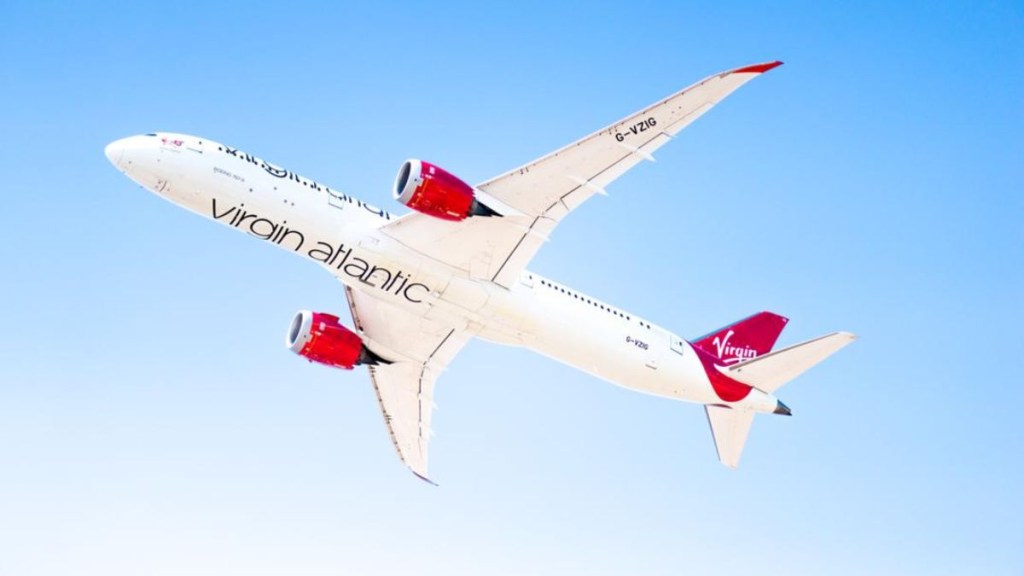Ahead of the COP28 Conference in UAE, Rolls-Royce introduced Flight100, an initiative led by Virgin Atlantic, showcasing the potential of SAF as a seamless substitute for fossil-derived jet fuel, compatible with existing engines, airframes, and fuel infrastructure.
Executed on a Boeing 787 equipped with Rolls-Royce Trent 1000 engines, this journey stands as a global first for a commercial airline, flying across the Atlantic solely on 100 percent SAF. The success of this milestone flight is attributed to a collaborative effort led by Virgin Atlantic and involving Boeing, Rolls-Royce, Imperial College London, University of Sheffield, ICF, and Rocky Mountain Institute, in partnership with the Department for Transport.
SAF emerges as a pivotal player in the long-haul aviation sector’s decarbonization journey, contributing to the pathway to achieve Net Zero by 2050. While technologies like electric and hydrogen remain distant prospects, SAF is a present-day solution. Currently constituting less than 0.1 percent of global jet fuel volumes, with commercial jet engines allowing only a 50percent SAF blend, Flight100 underscores that the challenge lies in scaling up production—a matter requiring swift policy decisions and investment to establish a robust UK SAF industry.
Beyond proving SAF’s capabilities, Flight100 aims to evaluate its impact on the flight’s non-carbon emissions. Consortium partners ICF, Rocky Mountain Institute (RMI), Imperial College London, and the University of Sheffield will support the assessment. The research seeks to enhance scientific insights into SAF’s effects on contrails and particulates, facilitating the integration of contrail forecasts into flight planning processes. Findings and research outcomes will be shared with the industry, with Virgin Atlantic’s continued engagement in contrail work through RMI’s Climate Impact Task Force, partially funded by Virgin Unite.
The SAF used in Flight100 is a distinctive dual blend, comprising 88percent HEFA (Hydroprocessed Esters and Fatty Acids) supplied by AirBP and 12percent SAK (Synthetic Aromatic Kerosene) supplied by Virent, a Marathon Petroleum Corporation subsidiary. HEFA is derived from waste fats, while SAK is produced from plant sugars, with the remaining plant proteins, oil, and fibres contributing to the food chain. Including SAK in 100percent SAF blends is crucial for the required aromatics for engine function. To achieve Net Zero by 2050, it is imperative to leverage innovation and investment across various feedstocks and technologies, maximizing SAF volumes, and sustaining research and development for zero-emission aircraft.
In a recent announcement, Rolls-Royce affirmed the compatibility of all its in-production civil aero engine types with 100percent SAF, fulfilling a commitment made in 2021 to demonstrate the absence of engine technology barriers to the use of 100percent SAF.
Who said what?
Shai Weiss, Chief Executive Officer, Virgin Atlantic, said:
“Flight100 proves that Sustainable Aviation Fuel can be used as a safe, drop-in replacement for fossil-derived jet fuel and it’s the only viable solution for decarbonising long-haul aviation. It’s taken radical collaboration to get here and we’re proud to have reached this important milestone, but we need to push further. There’s simply not enough SAF and it’s clear that in order to reach production at scale, we need to see significantly more investment. This will only happen when regulatory certainty and price support mechanisms, backed by the Government, are in place. Flight100 proves that if you make it, we’ll fly it.”
Richard Branson, Founder, Virgin Atlantic, said:
“The world will always assume something can’t be done, until you do it. The spirit of innovation is getting out there and trying to prove that we can do things better for everyone’s benefit.
“Virgin Atlantic has been challenging the status quo and pushing the aviation industry to never settle and do better since 1984. Fast forward nearly 40 years, that pioneering spirit continues to be Virgin Atlantic’s beating heart as it pushes the boundaries from carbon fibre aircraft and fleet upgrades to sustainable fuels.
“I couldn’t be prouder to be onboard Flight100 today alongside the teams at Virgin Atlantic and our partners, which have been working together to set the flight path for the decarbonisation of long-haul aviation.”
Mark Harper, Transport Secretary, Department for Transport, said:
“Today’s 100percent SAF powered flight shows how we can decarbonise transport both now and, in the future, cutting lifecycle emissions by 70percent and inspiring the next generation of solutions.
“This Government has backed today’s flight to take-off and we will continue to support the UK’s emerging SAF industry as it creates jobs, grows the economy and gets us to Jet Zero.”
Simon Burr, Group Director of Engineering, Technology & Safety, Rolls-Royce plc, said:
“We are incredibly proud that our Trent 1000 engines are powering the first ever widebody flight using 100percent Sustainable Aviation Fuel across the Atlantic today. Rolls-Royce has recently completed compatibility testing of 100percent SAF on all our in-production civil aero engine types and this is further proof that there are no engine technology barriers to the use of 100percent SAF. The flight represents a major milestone for the entire aviation industry in its journey towards net zero carbon emissions.”
Sheila Remes, Vice President of Environmental Sustainability, Boeing, said:
“In 2008 Virgin Atlantic and Boeing completed the first commercial SAF test flight on a 747 and today we will accomplish yet another significant milestone utilising a 787 Dreamliner. This flight is a key step toward our commitment to deliver 100percent SAF-compatible airplanes by 2030.”
